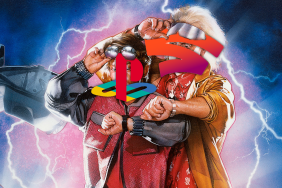Editor’s Letter is a series of ongoing articles on the state of PSLS, its future and the future of the industry as a whole.
Google is the gateway to the internet, it’s how most people find websites, news and interesting coverage. For site owners, it’s a vital source of traffic that can guarantee the life or death of the site – gain the number one slot on Google for an important term and millions of readers will flood in. In the games industry, these important terms include phrases like “PS4 news”, “Xbox 720 news” and “PlayStation news”.
For obvious reasons, Google guards the secret behind their search algorithm to try to stop spammy websites from dominating every search term. But a few things are known, such as the fact that backlinks from other sites greatly contribute to a site’s success on Google. For example, if PSLS hyperlinks the word kittens to a kittens post on Rathergood.com, it’ll improve the link’s chances of showing higher up on searches for kittens on Google. The more sites that link to Rathergood, the greater the chance.
Google uses these links to help work out what it thinks should be top because it can’t actually read the articles, it’s simply a computer bot. So it tries to judge the relevance of an article and the likelihood of it being what you’re searching for through these links – it also tries to judge the relevance of the site that is handing out the link, so, if we were a kitten website, our link would be even more potent.
That means that, for games websites, being linked to with “PS4 news” could completely change the fortune of the site by increasing its Google rank. Google’s hope is that these links will be gained by producing enough quality content for other sites to notice and give you credit (and we know how likely that is). Instead, sites often try to get links off of other site owners in other ways, such as by giving links in return, or even monetary payment. For example, I recently received this email from a TechRadar Editor:
Hi Sebastian,
My name is Michelle Fitzsimmons and I’m the News Editor at TechRadar.com. I wanted to extend a hello and an offer to back link to some of TechRadar’s more popular pages.
Here’s a list of some of our more popular content today that you’re free to link to:
Xbox 720: release date, news and rumors: [sitelinkremoved]-xbox-720-release-date-news-and-rumours-937167
Samsung Galaxy S4: what we want to see [sitelinkremoved]-samsung-galaxy-s4-what-we-want-to-see-1089523
PAX East 2013: what to expect from the show: [sitelinkremoved]-pax-east-2013-what-to-expect-from-the-show-1134589
Behind the scenes of The Hobbit: the special effects masters: [sitelinkremoved]-behind-the-scenes-of-the-hobbit-the-special-effects-masters-1136243Would you also be interested in receiving an email telling you when we publish new reviews on a regular basis? If so, let me know and I’ll send you an update whenever new hands-on reviews or news go up on our site.
A little bit about us: TechRadar, the U.K.’s #1 technology site, launched in the U.S. In April 2012, and we’ve already reached nearly 5 million unique visitors as of October 2012. What’s more, TechRadar attracts more than 17 million global unique visitors a month.
Here’s a link to the press release about our official release http://www.prnewswire.com/news-releases/techradarcom-goes-live-in-the-united-states-146789535.html , as well as a link to TechRadar.com in the U.S. — http://www.techradar.com/us.
Please let me know if you’d like us to send you any more content.
Thanks for your time!
I replied that “as tempting as it is, we only link to websites when they have content that we have sourced, or we simply think our readers would love to read the content, thus promoting quality content and quality journalism. Randomly linking to articles simply serves to trick Google into thinking a link is of better value than it may actually be, giving priority to the best connected players, rather than the best people in the industry. As I’m sure you agree, that’s not in the best interest of our readers, or readers in general.”
She did not reply.
Linking to pages for reasons other than that they are good is a systemic problem in the industry and in the internet. Cabals of sites share links and boost each other’s ranks, without taking quality into account. The result is that the best sites and the best content aren’t necessarily the ones you’ll find when you Google something.
Instead, TechRadar is.
As the amount of links to a site grows, their position on Google becomes ever more secure, no matter how well written their content is. The result is that newer sites, or smaller sites who may be run by a single individual, aren’t necessarily the ones you’ll find when you Google something.
Instead, TechRadar is.
Because it’s a number’s game – the more links the better – the more unscrupulous sites that acquire links by any means are likely to be higher on Google. The result is that sites that have ethics, or actually care about the industry or readers, aren’t necessarily the ones you’ll find when you Google something.
Instead, TechRadar is.







